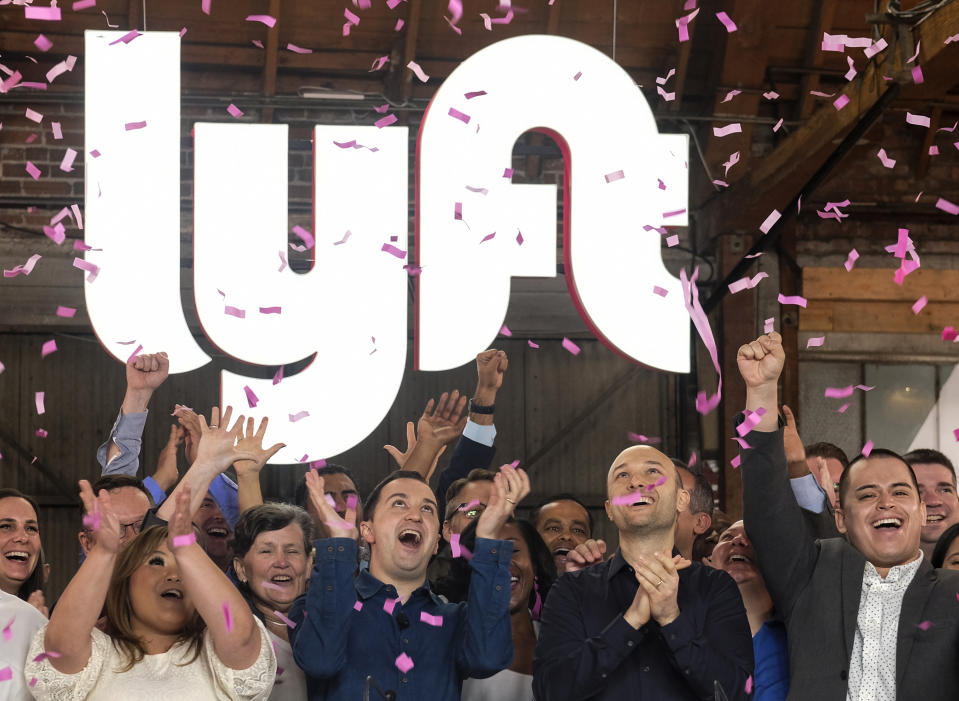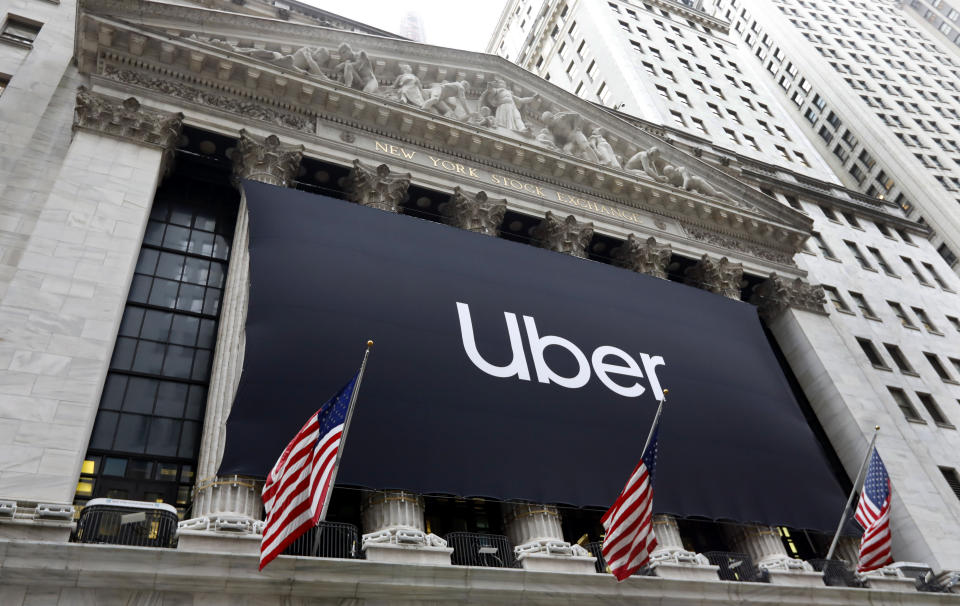The 5 worst performing IPOs of 2019
The past year saw a whirlwind of big-name companies make their debuts on the public markets. And while there were a number that saw their stock prices soar — including the likes of video conferencing company Zoom (ZM) and China’s Luckin Coffee (LK) — there were others that proved to be absolute dogs.
From health and transportation to video games, these stocks came from a number of different industries, but their common denominator was that they stank up the markets in 2019.
Since so many companies make their IPOs each year, we’re only focusing on the big ones — the firms that raised $250 million or more. And we enlisted the help of Renaissance Capital, which tracks IPOs via its own IPO ETF, to get the lowdown on this year’s losers.
These are the worst performing stocks that went public in 2019.
5. SciPlay — Down 21% since IPO
SciPlay (SCPL) is a gambling app maker that puts out titles like “Monopoly Slots” and “Bingo Showdown,” for Android and iOS that generally receive positive reviews from players.
But since it went public, the company’s stock has taken a serious beating. Initially offered at $16 a share in May, the firm’s stock closed the trading day on Dec. 10 at $12.68 a share. That’s a 21% drop in value since its IPO.
According to Renaissance Capital ETF IPO manager Kathleen Smith, part of SciPlay’s problem is that it had to spend a lot of cash building up its game portfolio.
“[They] have free to play games on mobile, and they have a lot of players, but they need to keep spending to produce games to get people onboard,” Smith said. “And that takes a big investment. They had profits on their existing portfolio, but they spent a ton on games.”
4. Douyu — Down 36% since IPO
China’s answer to Amazon’s Twitch, Douyu (DOYU) is the most popular game-streaming platform in that country. The service lets users watch their favorite streamers play games, and tip them via virtual items that translate into real-world cash for streamers.
But the firm’s stock has been hit hard since its April IPO. Douyu initially listed at $11.50, but when markets closed on Dec. 10, it was trading down $36% at $7.32. It doesn’t help that Douyu, and its chief rival Huya, are both backed by Chinese gaming giant Tencent, or that the smaller Huya is profitable, while Douyu isn’t.
3. Lyft — Down 37% since IPO

The first of the two big U.S. ride-hailing companies to go public, Lyft (LYFT) hit the market in March at $72 a share, and has spent the vast majority of the year that price. Since its IPO, the stock has fallen 37% to $45.26 as of Dec. 10.
Lyft, like many of 2019’s unicorns, still isn’t profitable. In fact, in its last fiscal quarter, the company lost a staggering $463.5 million.
It’s not all bad for Lyft, though. The company’s revenue in its most recent quarter was up from $585 million a year ago, to $955.6 million.
And according to Morningstar senior analyst Ali Mogharabi, Lyft is set to become profitable from a GAAP standpoint by 2023. The main reason the company is able to do that is by focusing on its ride-sharing service, and not overextending like its chief rival Uber has.
What’s more, Lyft’s active ridership hit 22.3 million users. If the company keeps up that kind of momentum, it could eventually write off 2019 as a period of growing pains.
2. Uber — Down 61% since IPO

Easily one of the most anticipated IPOs of 2019, Uber (UBER) came to market in May at $45 per share. It hit a high of $47.08 in June, but has been below that price ever since.
Mogharabi says Uber has faced two issues. The first is that the company’s stock lockout lifted around November, giving major shareholders the ability to sell their stock, which sent share prices plummeting. The second is that the ride-hailing service is still a long-term investment project.
“Uber is down mainly because of how long it’s going to take for the company to become profitable,” he explained.
“The investors in that name require patience. Even in the short term, it didn’t generate much return for the investors when it went public.”
According to his estimates, Mogharabi says Uber is projected to reach profitability on a GAAP basis by 2024 — a year after Lyft.
1. SmileDirectClub — Down 65% since IPO

SmileDirectClub (SDC) is a direct-to-consumer teledentistry company that lets you order orthodontic teeth straighteners online. Its big pitch is that for a one-time payment of $1,895, you can get your teeth straightened regardless of how crooked they are.
But the company has been hit with legal setbacks as states including California and Georgia pass laws that require that a licensed dentist be on hand anytime 3D images are taken of a patient’s mouth. That would put a significant dent in SmileDirectClub’s bottom line.
The company listed its IPO in September at $23 a share. Fast forward to Dec. 10, and the stock had sunk 65% to $7.96.
More from Dan:
Got a tip? Email Daniel Howley at [email protected] or [email protected], and follow him on Twitter at @DanielHowley.
Follow Yahoo Finance on Twitter, Facebook, Instagram, Flipboard, SmartNews, LinkedIn,YouTube, and reddit.
